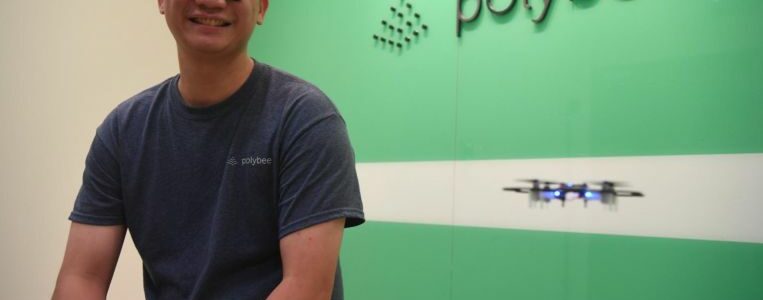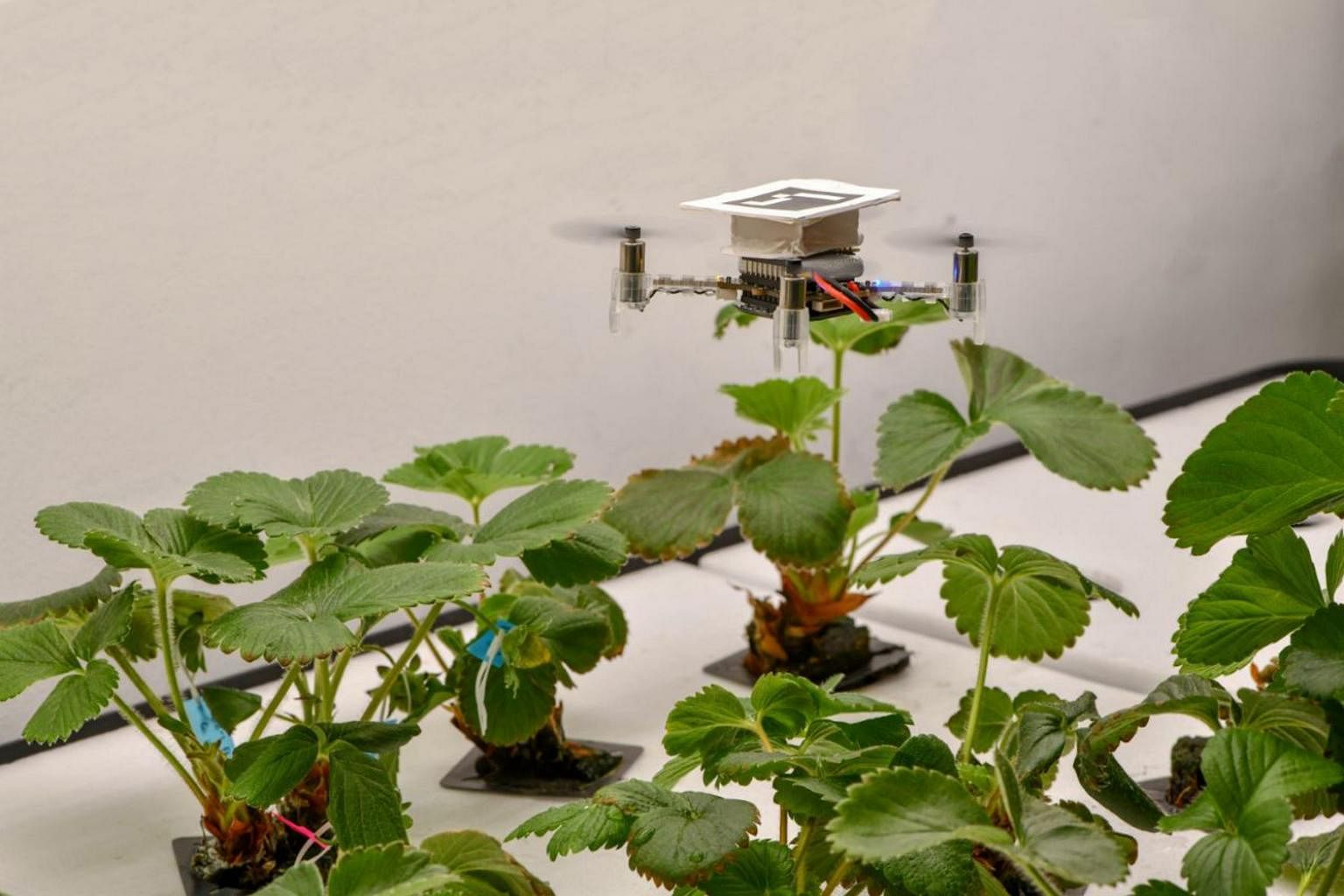
Start-ups create innovative solutions to help cities become more sustainable and resilient
SINGAPORE – Plants and drones do not seem to have much in common but a Singapore team’s plan to use the aerial craft to pollinate plants in indoor settings is fast taking flight.
The team – a start-up called Polybee that was one of eight finalists in the Lee Kuan Yew Global Business Plan Competition – developed a method of pollinating major indoor-grown fruit such as strawberries, tomatoes, pepper and eggplant using autonomous micro-drones.
The machines can also help urban farmers to measure plant health, stress, yield and quality and other aspects, which all must now be done manually.
Polybee founder and chief executive Siddharth Jadhav said: “Natural pollinators are either unavailable in most geographies, or are too difficult to manage in indoor environments. The only alternative is manual pollination; it is a bottleneck in high quality production due to its expense and inefficiency.
“Our vision is to build a comprehensive precision horticulture service that improves productivity in controlled environment agriculture.”
The team won a prize that will give it access to the DBS innovation ecosystem, among other perks, when the winners of the biennial competition organised by the Singapore Management University (SMU) were announced on Friday (March 19).
Iterative Scopes, which develops artificial intelligence (AI)-based detection and diagnostic tools for gastrointestinal physicians, won its category of pre-revenue start-ups.
Relectrify, a newbie that creates tech solutions to increase the capacity and lifetime of electric vehicle batteries, won in the category for revenue-generating start-ups. Both winners got $250,000 worth of rewards each.
The contest attracted around 850 entries from 650 universities across 60 countries, with projects relating to the theme of building smart, sustainable and resilient cities.
Another finalist, MyrLabs, is tackling that challenge by developing a system that allows robots to operate in complex areas such as in crowds.
Founder and managing director Gabriel Yee pointed to the value of the competition: “(It) focused on business plans, instead of being another run-off-the-mill pitching session. Beyond the assigned mentor, I also had the opportunity to meet with several venture capital partners.
“It is a rare and valuable opportunity to get advice directly from the decision makers instead of analysts.”
Deputy Prime Minister Heng Swee Keat told a virtual audience at the finals event: “We may be facing the worst pandemic in a century, but we are also living in an age of unprecedented innovation.
“Indeed, our ability to adapt and innovate will be critical to enable us to overcome this virus, and emerge stronger in the post-Covid era.”
He added that the pandemic has accelerated the pace of digital change and put a premium on resilience and sustainability for cities worldwide, making this year’s theme very timely.
Mr Heng noted that when the competition first started in 2001, Singapore’s economy was transiting from a capital-intensive model to a technology-intensive one.

“Innovation has been critical to how Singapore, a city state with no natural resources, grows and develops our economy and strengthens our social fabric,” he said.
“In the next phase of development, we will put an even greater focus on innovation and partnerships.”
SMU president Lily Kong added that the university is strengthening its industry engagement through formal collaboration and joint projects, while also expanding its international connections.
Mr Hau Koh Foo, SMU director of the institute of innovation and entrepreneurship, said: “In a nascent ecosystem like Singapore, competition is a great way to incentivise action.
“Participating in a competition will be easier (than applying for an incubator) and is a more fun way to get young entrepreneurs to take the leap.
“If you look at start-ups, 90 per cent of them will fail because it is a very tough journey … they need all kinds of support to become successful.
“This platform consolidates resources and all this can be available to the start-ups that participate.”
iGlobe Partners managing partner Robert Chew, who was also the category finals head judge, said that sustainability is also a big theme for start-ups.
“It is the topic of the times so the money is there. Start-ups will do well if they focus on solving some of these problems, such as green energy and urban farming.”
Join ST’s Telegram channel here and get the latest breaking news delivered to you.
Source: Read Full Article